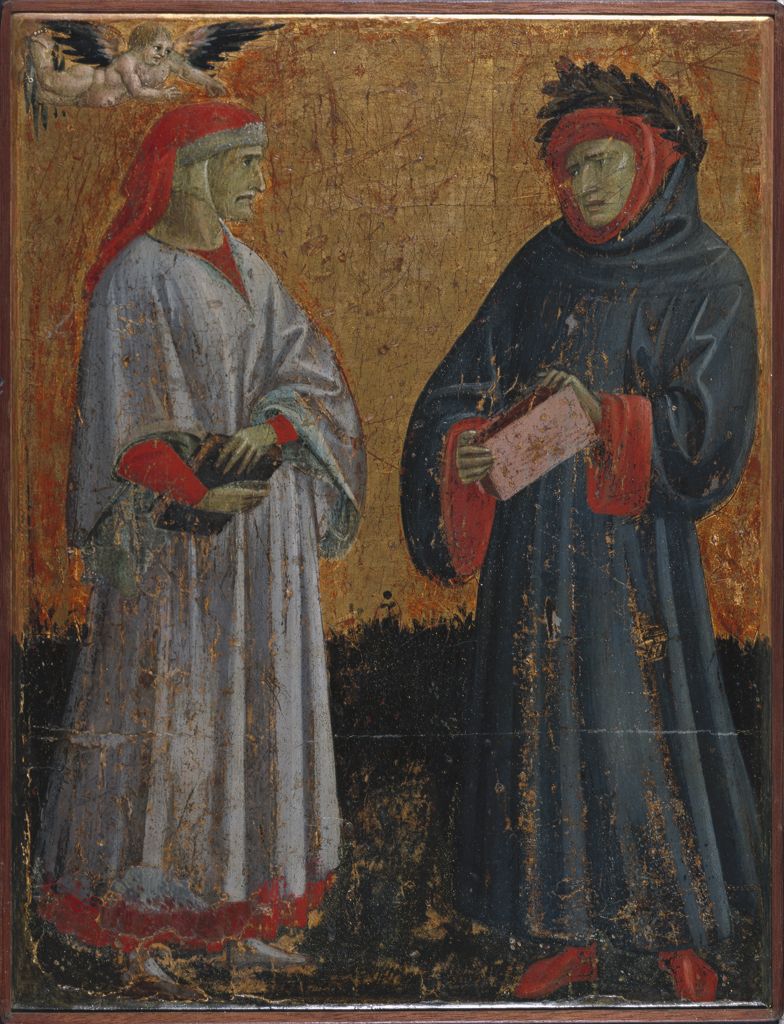This sonnet is part of La Vita Nova (The New Life... i just realized now that i went for a few years to a very modern looking gym called New Life!).

"Dante and Beatrice" by Henry Holiday - Unknown. Licensed under Public Domain via Wikimedia Commons.
| Tanto gentile e tanto onesta pare La donna mia quand'ella altrui saluta Ch'ogne lingua deven tremando muta, E li occhi no l'ardiscon di guardare. Ella si va, sentendosi laudare, Benignamente d'umilta' vestuta; E par che sia una cosa venuta Da cielo in terra a miracol mostrare. Mostrasi si' piacente a chi la mira, Che da' per li occhi una dolcezza al core, Che 'ntender non la puo' chi no la prova; E par che de la sua labbia si mova Uno spirito soave pien d'amore, Che va dicendo a l'anima: "Sospira." |
So gentle and virtuous she appears, My lady, when greeting other people That every tongue tremblingly grows silent, And eyes do not dare gaze upon her. She passes by, hearing herself praised, Graciously clothed with humility, And she appears to be a creature who has come From heaven to earth to show forth a miracle. She shows herself so pleasing to her beholders, That she gives through the eyes a sweetness to the heart, Which no one can understand who does not feel it; And it appears that from her lip moves A tender spirit full of love, Which says again and again to the soul: "Sigh." Translation by Luciano Rebay |
- This is one of the defining poem of Dante's obsession with Beatrice Portinari (the woman that will intercede and guide him in the Commedia) and with love as an almost pure spiritual/platonic thing (damning lesser men for centuries...)
- The language is so readable by modern italians and it was written some 720 years ago!
- I feel giddy and guilty because when studying it at school i wrote a parody of it (or at least of the first lines), playing on the meaning of onesta/virtuous pare/appears ;-)
- This girl (Dante himself met her only two times, once when they were nine years old and once when they were eighteen) does not even (or can't) be described in her physical appearance, she is too beautiful for words and/or her beauty is not corporeal.
- In the end Dante married (they were betrothed when he was twelve) another woman: Gemma di Manetto Donati, a woman he never mentioned in his works and that bore him at least two sons and a daughter (that became a nun choosing Beatrice as her name...)
I even just discovered today is World Poetry Day..

